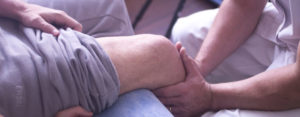Hip pain is a common problem that can affect people of all ages and genders. This type of pain can start suddenly or develop slowly over time. People with hip arthritis experience pain at night.
Hip pain can make it impossible to fall asleep and wake you up during the night. Poor sleep can worsen your hip pain. If you have hip arthritis, finding a long-term solution for hip pain relief in Wilmington, NC, can be critical for you. This condition can affect your sleep quality, movement, and ability to complete your daily activities.
In this session, you can find the causes of hip pain, pain management options for hip pain relief in Wilmington, NC, and the best ways to sleep better at night.
The Common Causes of Hip Pain at Night
Various factors and conditions can develop hip pain at night. Some common reasons are given below:
- Sciatic piriformis syndrome
- Tendonitis Osteoarthritis (OA)
- Tendonitis
- Bursitis
- Poor sleeping posture
- Pregnancy
Other physical conditions can also contribute to hip pain. It is known as referred pain.
Best Ways to Manage Your Hip Pain at Night
Various pain management options are available to decrease and manage the level of your hip pain at night. You can follow these things to prevent night pain and sleep better.
Immediate Relief
- You can prevent hip pain by changing your sleeping posture.
- Lying flat on the back can lead to less compression between the hips.
- If you are lying on one side, use a soft pillow between your legs. It can help you to keep your legs parallel and support the spine, pelvis, and hips.
- Use a new mattress to distribute your weight and decrease the pressure on the hips.
- Place more than two pillows under your knees. It can help you to relieve the pain from sciatic-piriformis syndrome.
- Use a wedge-shaped pillow under your hip to offer a cushion.
These tips can help you to get hip pain relief in Wilmington, NC. If your hip pain is unmanageable, use hot and cold therapy. This is one of the best approaches to get relief from hip pain.
If your hip pain occurs by injury or swelling, hot and cold therapy can be the ideal option. By applying a hot pack, you can reduce muscle spasms, stiffness, and arthritis pain. You can decrease the level of your hip pain, swelling, and inflammation by using an ice pack on your hips.
In some cases, your doctor may recommend you to take pain relievers. OTC (Over the counter) and NSAIDs (Nonsteroidal anti-inflammatories) like ibuprofen can help you get instant relief from your hip pain. Before taking any medicines or drugs, please consult with our doctor. A joint specialist can help you get hip pain relief in Wilmington, NC, through effective medication treatment.
Long-Term Relief
If you are experiencing hip pain for a long period, you may require a solution for long-term relief. Visiting a doctor or health care service provider is one of the best options. Your doctor can help you to treat your hip pain effectively.
They may recommend the following option to deal with your hip pain.
- Visiting a physiotherapist
- Removing fluid from the bursa
- Removing the bursa through arthroscopic surgery
- Cortisone or steroid injections into your hip joint or bursa
- Hyaluronic acid injections to lubricate your hip joint
- Total hip replacement surgery (Arthroplasty)
- Hip resurfacing to replace and remove damaged bone
- Arthroscopy to remove the loose pieces of bone spurs or cartilage around the hip
- Arthritis medicines like DMARDs (Disease-modifying antirheumatic drugs)
Prevent Hip Pain At Night
When your hip arthritis keeps you awake, you can consider the following things. It can help you to prevent your hip pain and improve the quality of your sleep.
Low-impact exercises:
Low-impact exercises and activities are beneficial to reduce hip pain. These exercises can help you to relieve your pain, discomfort and improve sleep. Low-impact exercise is the best option to build strength and muscle endurance without putting pressure on your hip joints. You can try the following low-impact exercises for hip pain relief in Wilmington, NC.
- Swimming
- Water aerobics
- Walking
- Bodyweight training
- Rowing
- Cycling
- Yoga
- Climbing
Stretching and strengthening exercises
Stretching and strengthening exercises can help you decrease your hip pain level and prevent future hip injury and pain. Many doctors recommend stretching exercises to improve flexibility and range of motion. You can use strengthening exercises to improve the strength of your muscle that supports your joint. Both exercises can allow you to sleep without hip pain and improve the quality of sleep.
Maintain healthy weight
You can prevent your hip pain by maintaining your body weight. Being overweight can also develop joint pain and other physical conditions. You can prepare a nutrient-rich and healthy diet plan to maintain your body weight.


